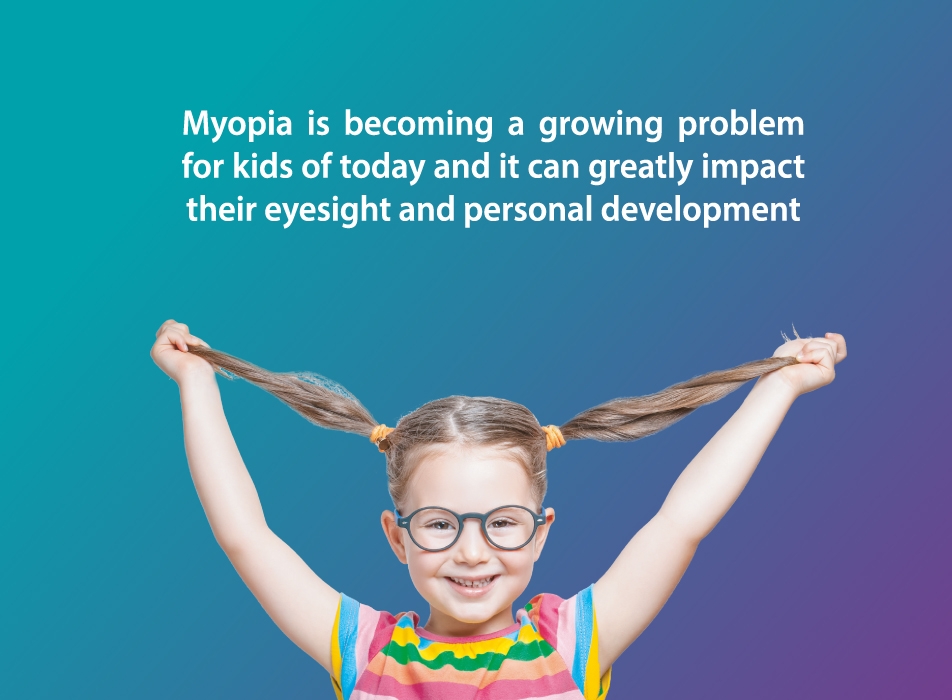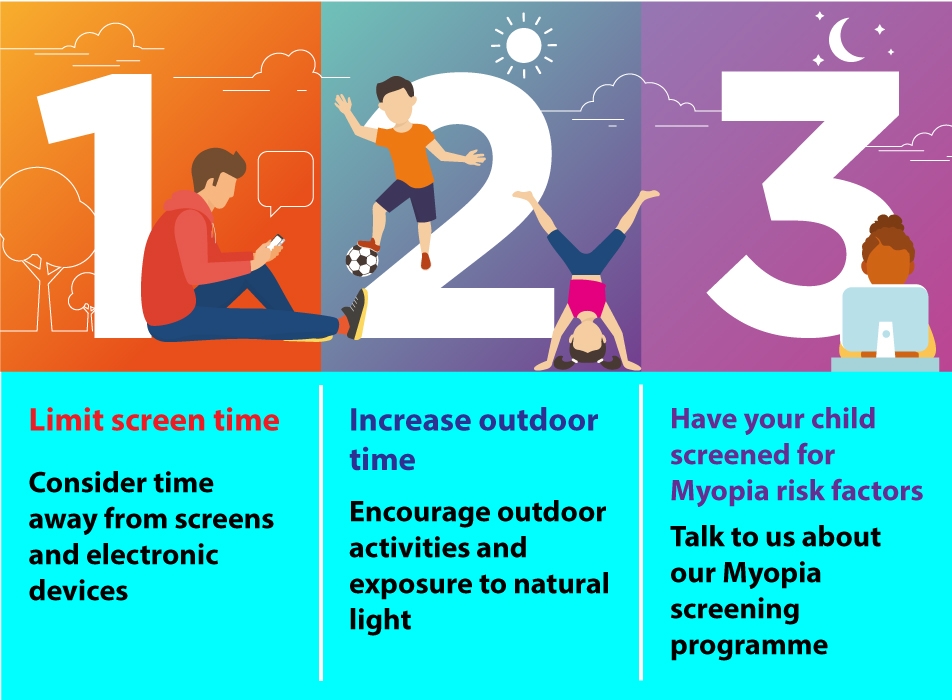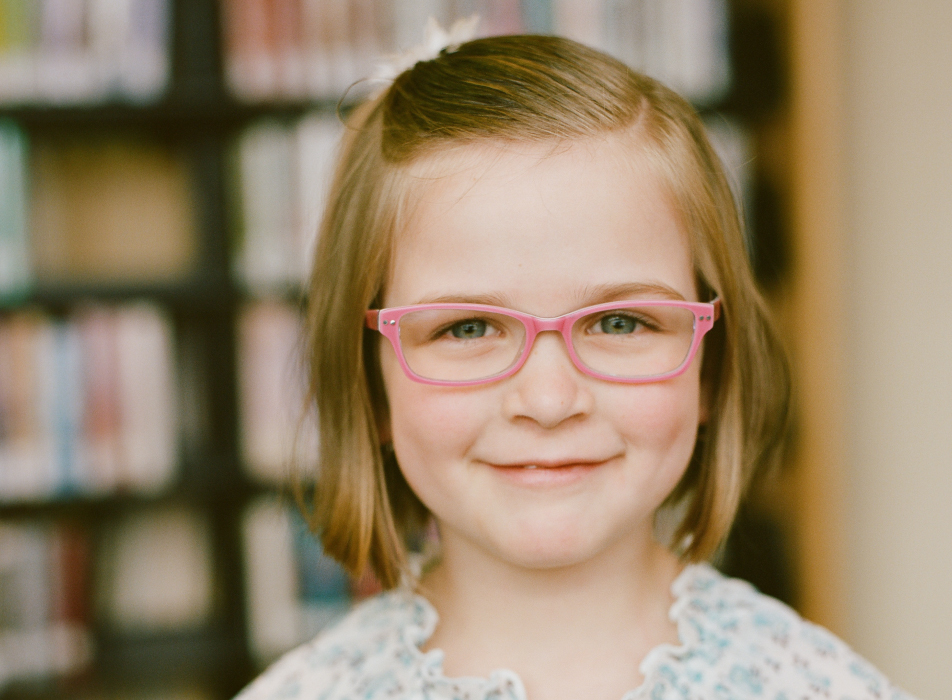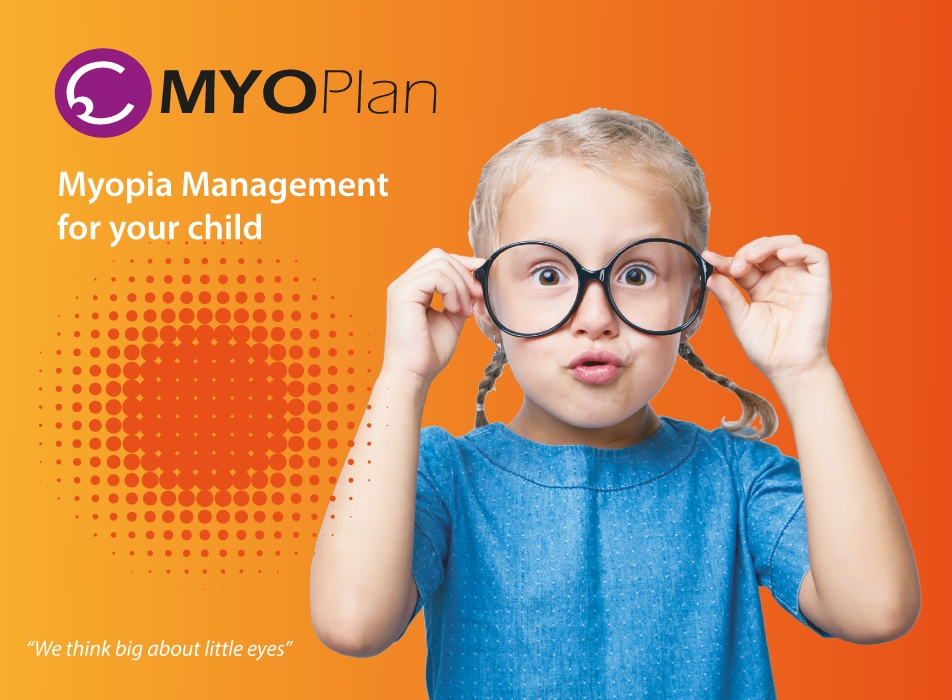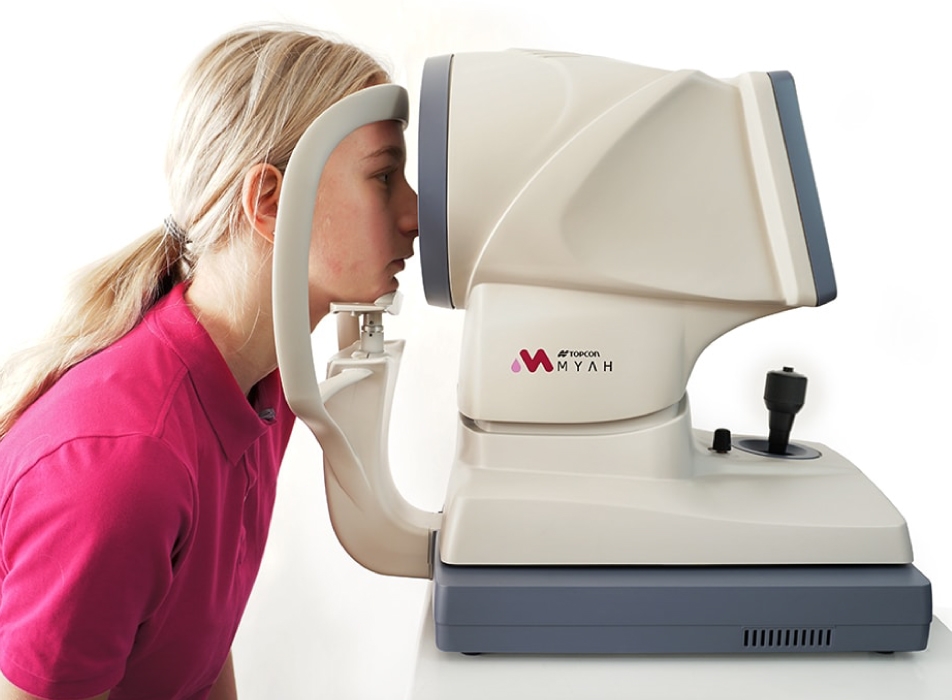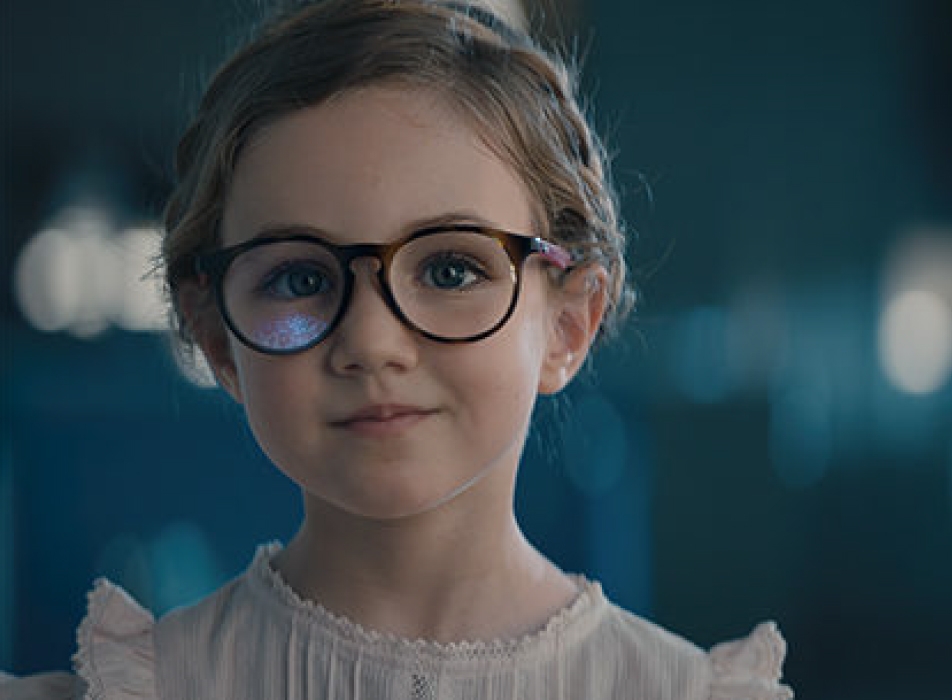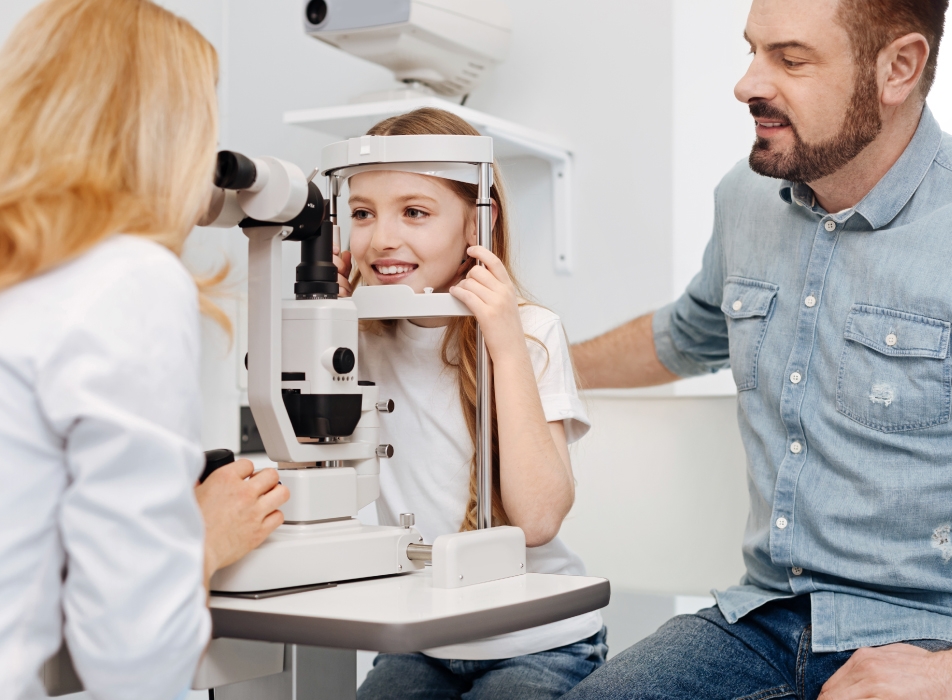Myopia
What causes Myopia and how we can help reduce progressionMyopia is now common in children
Myopia or short-sightedness can affect your child’s vision now and may likely worsen, as the child grows up. It can also lead to an increased risk of developing serious eye health conditions in adulthood.
Myopia starts from an early age and increases as your child grows. But you can do something to slow it down.
What is Myopia?
Myopia is when the eye becomes elongated and happens as a child grows. This elongation, once it starts, will increase until the child has finished growing – in their early twenties. In myopia management, we aim to slow down this natural progression using specialist spectacles or contact lenses. We also monitor this decline using the latest equipment.
Myopia is becoming more prolific in the children of today. Studies have shown that by 2050, half the population will be short sighted. But we can do something about it.
Myopia is partially hereditary. If one parent is short-sighted there is a reasonable probability that the child will also be shortsighted. This is increased if both parents are short-sighted.
Myopia is now increasingly linked with excessive screen time and lack of natural light.
What can we as parents do to help?
There are things you can do at home and professional help which will aid slowing down Myopic progression
Firstly consider the options with their electronic devices. Consider no phones in the bedroom after bedtime; no screens during meals and set a good example by limiting your own screen time.
Being active outdoors not only gets them away from their screens but evidence suggests exposure to outdoor light can slow the onset and progression of Myopia.
Have your child screened at Benjamins to see if your child is at risk of Myopia. Then we can look at how to manage it.
Identifying Myopia in your child and how we manage it
You may have read about Myopia in children and how its become a real 21st century issue for this and future generations of children. You can be assured the best attention and advice from Benjamin Opticians:
Sound advice on how to help your child reduce the effects of Myopic progression
Expertly fitted spectacles or contact lenses designed to help slow down Myopic progression from an early age.
Regular monitoring using specialist equipment to see how effective our Myopia management programme is with your child'
Peace of mind that you are doing someing about protecting their future eye health as well as their ability to function normally today.
Call to make an appointment for a Myopia assessment for your child
Call 01756 792933 or email info@benjamin-opticians.co.uk
Introducing MyoPlan
A bespoke care package for managing your child’s Myopia. Using either bespoke spectacles, disposable contact lenses or overnight reusable contact lenses to slow down Myopic progression, so they are less short-sighted than they would have been and the risk of serious problems in later life is reduced.
Your MyoPlan ensures regular monitoring using our Myah technology to measure the length of the eye and see how well your child is responding to treatment. You’ll receive a full report at regular myopia assessments.
Myah – the most advanced instrument for measuring Myopic progression
We proudly use MYAH – the instrument that provides the initial baseline to monitor risk – essential to monitor eye elongation, comparing it to built-in growth curves.
MYAH is a non-invasive, non-contact technology, which charts the progress of your child’s Myopic progression. After each measurement (usually every few months) the results are added to a report, so you can see how effective the chosen course of treatment is.
How we slow down Myopia
As you will have read above, lifestyle changes play an important part in reducing myopic progression (becoming more shortsighted).
There are a number of products that can also play a key role in reducing Myopic progression – in effect slowing down the inevitable, once diagnosed. These include specialist spectacles or contact lenses.

